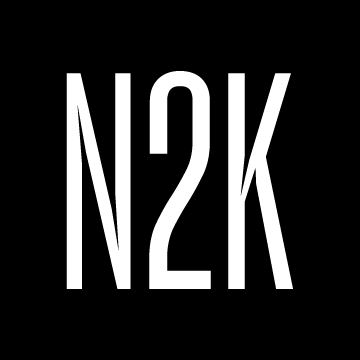Student Spotlight: Ron Brown, CISSP
Welcome back to CyberVista’s Student Spotlight Series. In this series, we talk to newly-minted CISSPs who used the CyberVista system to earn their cert. This episode we talked with Ron Brown, Security Engineer at TriHealth Inc. The following interview has been edited for clarity and brevity.
CyberVista: Can you describe your job responsibilities as a Security Engineer?
Ron Brown: I carry quite a few security engineering responsibilities, largely around vulnerability and risk management, identity and access management, incident response, and risk assessment.
CV: How did you first get interested in cybersecurity?
RB: I got into cybersecurity seven years ago. From the time I was about 11 or 12, I had an interest in computers, and became interested in hacking in my mid-teens. Prior to beginning my career in IT, I was an airplane mechanic for the United States Air Force for about 8-9 years. My first position in IT was in cybersecurity. Above all else, what really motivated me to begin a new career was the opportunity to guard and protect systems from criminal activity and threat actors. I’ve been involved in cybersecurity ever since.
CV: Why did you decide to earn your CISSP certification?
RB: Before I began my cybersecurity career I obtained my Network+ certification and Security+ certification from CompTIA. That being said, those are entry-level certifications. I realized early on that certifications were one of the ways companies can prove your competence in the cybersecurity field. It has been a personal goal for quite some time to earn my CISSP, and my current job requires me to obtain it in order for me to achieve higher job titles and positions.
CV: What did you like best about your CISSP training experience?
RB: This was my first time studying for a certification through live online training. There were definitely benefits to taking a live online class. For example, you can take your classes from anywhere with an Internet connection. What I really found helpful was the design of the course delivering the information in modules. CyberVista provided multiple learning tools to aid my studies. I do believe all of those different aspects helped reinforce each other and instill a strong understanding of the CISSP concepts and topics.
CV: What CyberVista study resources were most helpful?
RB: The quiz bank and the longer assessments [practice exams] seemed to aid me the most. The setup of the test and quiz questions and also the explanation as to why the right answer was the right answer really helped me grasp an understanding of the entire concept instead of just spewing out questions and answers.
CV: Do you have a favorite CISSP exam domain/topic?
RB: One of the domains that I come across quite a bit at work, and have a deep interest in, is Security Engineering. I’m also interested in encryption and I encounter that regularly in my current position.
CV: Tell us about your exam experience.
RB: I took the exam almost immediately after I finished the last class. It wasn’t even a full week between the last class and my exam date. The exam definitely wasn’t an easy exam, but because of my training I felt that I could address each question with at least an educated decision. I believe the prep class really gave me the tools to pass the exam the first time I took it.
CV: What do you like to do for fun outside of work?
RB: Well my family and I live on a small 50-acre farm, so I really enjoy getting out and getting my hands dirty. There’s plenty to do between fixing fences and tending to the cows and chickens. I don’t get as much opportunity to play sports as I would like, but when I have the energy, I love playing football and basketball. And of course, I love spending time with my family. Lastly, as if I wasn’t busy enough, I volunteer for an organization that helps missionaries with IT needs.
CV: What do you predict is the future of cybersecurity?
RB: The upside of cybersecurity is that it’s going to continue to grow. We may reach a level where network systems are secured by default, but that is not anytime soon. I see it’s going to continue to be a struggle to keep network systems secure and out of the hands of the bad guys. On a positive note, I do see a trend where cybersecurity is receiving more attention from upper-level management, and hopefully as it becomes a higher priority, the needs of security practitioners will be more strongly supported by management.
I do notice younger generations aren’t gravitating towards the field, and there seems to be this general acceptance of how cybersecurity works now. Specifically speaking, there’s this incorrect mentality that cybersecurity is a hardship we have to deal with, but not a serious concern. There’s this presumatory notion that there’s an acceptance that credit cards and personal information are going to get hacked, and it cannot be prevented. People assume network systems will always bounce back when there’s a breach. There’s this viewpoint where people think, ‘If we can’t really change anything, then why try?’ If I were able to give them a collective piece of advice, I’d say to the younger generation that cybersecurity is a field that has great opportunities of all sorts–whether it’s education, competitive salaries, and many jobs that make a real difference and foster a safer IT community.
Do You Want to Pass?
Be like Ron and realize you have what it takes to earn your CISSP. At CyberVista we have two goals: Help you learn the material so you can pass the exam, and help you retain the information so you can apply what you learn for the long term. Learn more about CyberVista’s Live Online CISSP training course.

